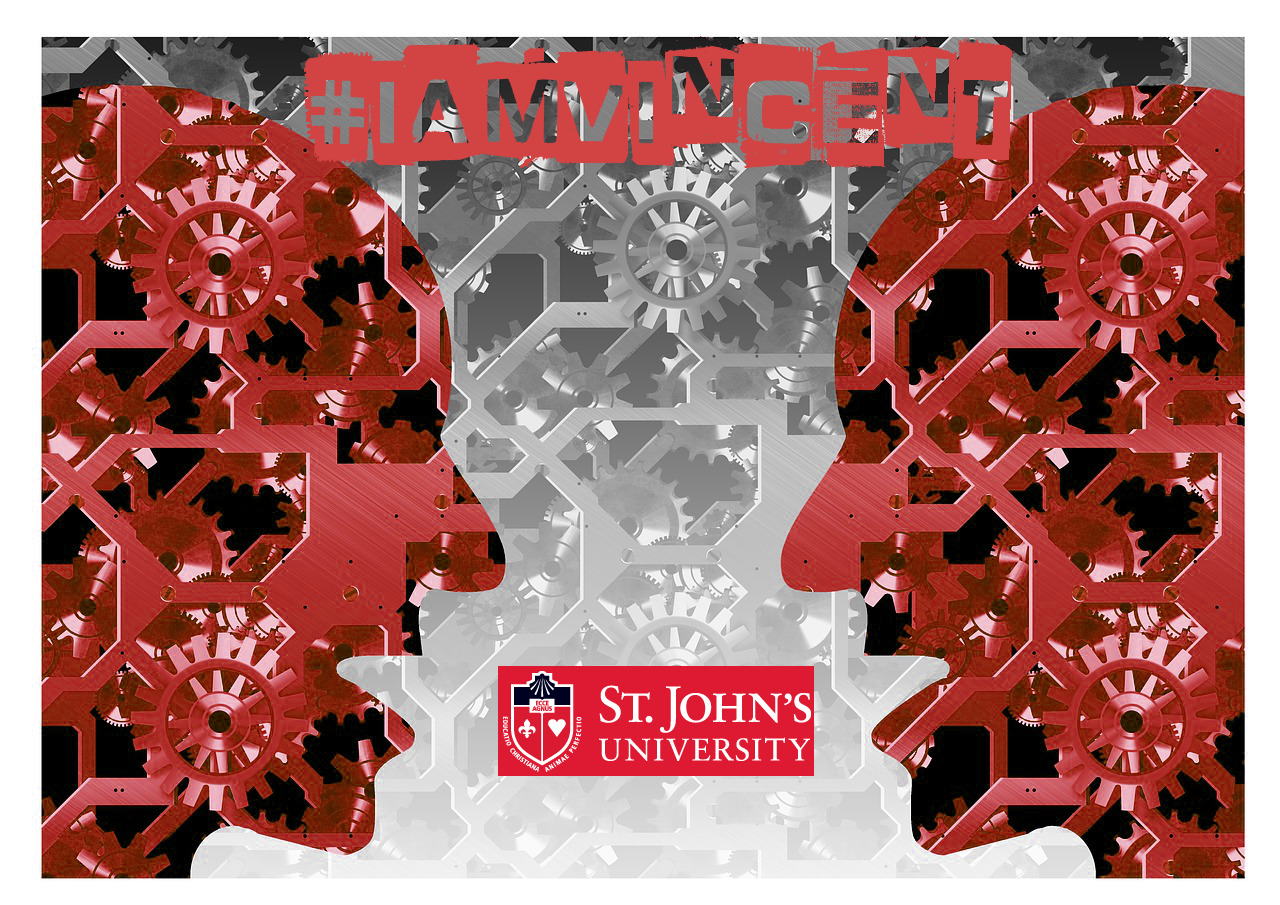
One Day Dialogues are a program of the St. John’s University School of Law, fostering open dialogue on Race, Justice, and the Law. We can’t forget that part of the Vincentian struggle for systemic change is to reveal the structures of oppression that still exist in our societies. The following is from a report at the St. John’s website.
The mass murders at the San Bernadino Inland Center; the clarion call for a return to exclusionary immigration policies; and the hate crimes against Muslim Americans and other dark-skinned communities all mark this moment in American history as one of the most regressive and violent in recent memory.
But it’s also a moment that offers an unrivaled opportunity to raise awareness about civil rights and continuing inequity in the United States, to teach law students the importance and the challenge of diversity and inclusion, and to help them embrace their role as much-needed change agents. A year ago, together with student leaders, the Ron Brown Center for Civil Rights seized this opportunity when it launched the Day One Dialogues on race, justice, and the law.
The inaugural event was a big success, and the center continued the vital conversation with a program featuring M. Quentin B.L. Williams ’91, who discussed his new book, A Survival Guide: How Not to Get Killed by the Police, Part I. Then, this fall, the center and St. John’s University co-hosted a talk by author, civil rights lawyer, and social activist Bryan Stevenson on “American Injustice: Mercy, Humanity, and Making a Difference.”
In January, the St. John’s Law community came together for the second annual Day One Dialogues: Fear and Freedom. To open the event, Rex Chen, an adjunct professor in the Law School’s Child Advocacy Clinic and a mentor attorney with the Safe Passage Project, shared his experience defending victims of racial profiling and government mistreatment in immigration court. The participants then broke into small groups facilitated by student volunteers, where they discussed mass shootings and terrorism in America and the implications for immigration policy, gun control legislation, and religious tolerance.
“My peers were incredibly informed about the topics, so it became a great forum for respectfully engaging and challenging each other to think more deeply about the issues,” says Caroline Fish ’18. Calling his group discussion “spirited and judgment-free,” Maurice Sayeh ’17 adds, “We were able to look at the issues objectively, but we also felt free to share personal beliefs informed by our different backgrounds.”
Nia Bronner ’18 also appreciated her group’s open conversation, which focused on how the issues dominating the 2016 presidential race play on people’s fears. “As future leaders of communities and as future advocates, it’s extremely important that we learn from each other’s perspectives, and that we understand each other’s fears,” she says.
Reflecting on the evening, Professor Rosa Castello, the assistant director of the Ron Brown Center, says that the dialogues were so successful because students took the lead in choosing the topics. “They wanted to talk about the anti-Muslim sentiment and the safety concerns raised by recent terror attacks, and they wanted to expand the dialogue to other social justice issues that are affecting our country and communities today,” she shares. “We listened to them and that set the tone for conversations that were open, honest, and respectful. It was a great learning experience for me.”
As Caroline Fish notes, the lessons of the One Day Dialogues are lasting.
“These discussions make us consider how fear, hate, and discrimination impact world views, policy decisions, and individual lives. We’re better advocates and lawyers when we approach tough policy and legal issues with an open mind and a desire to do the right thing in the pursuit of a more just system and country.”







0 Comments